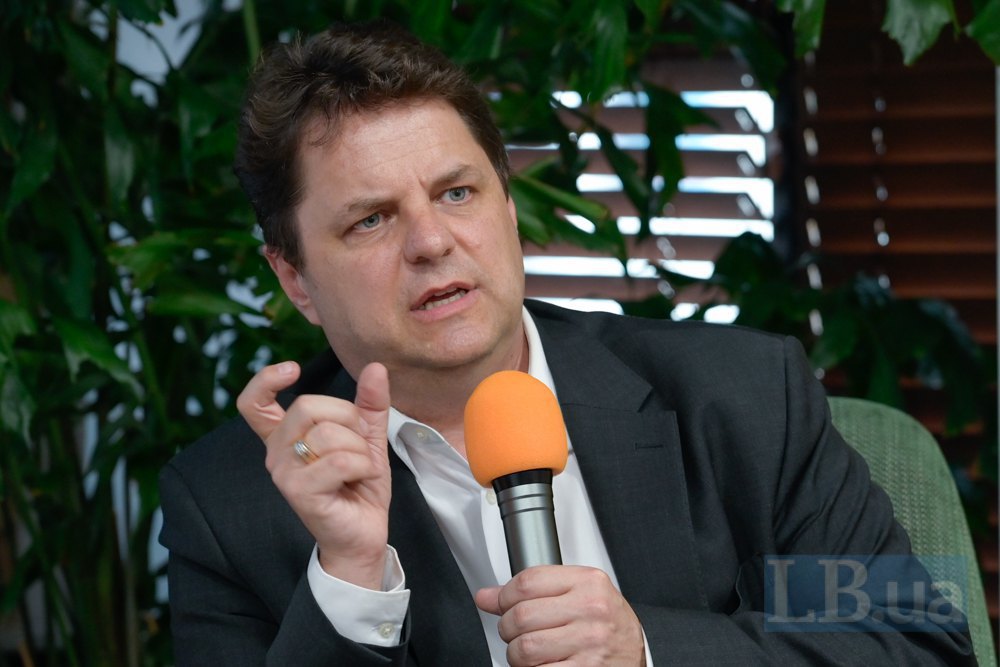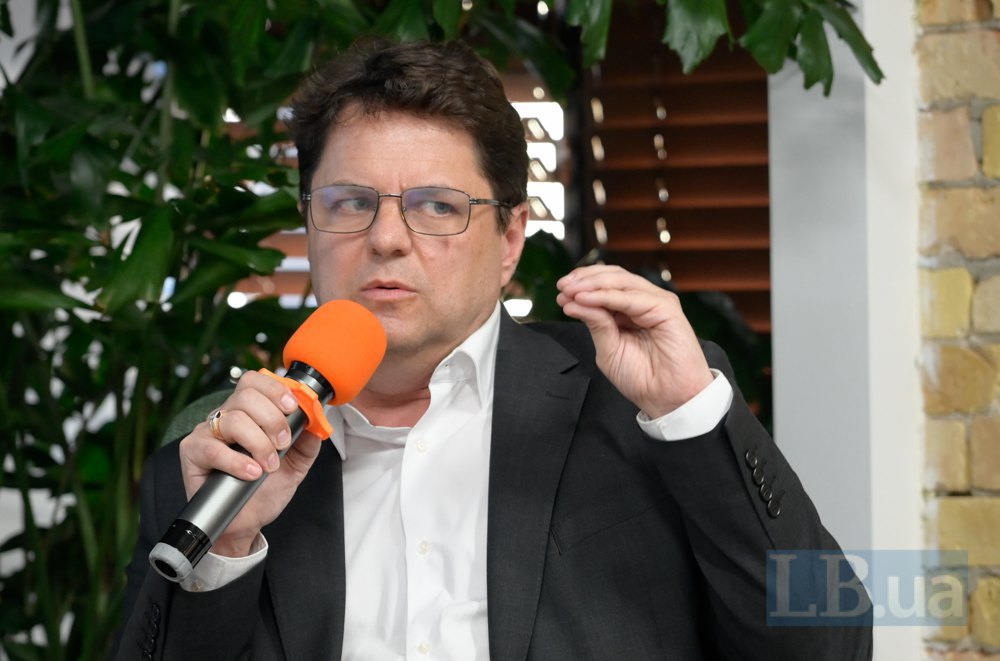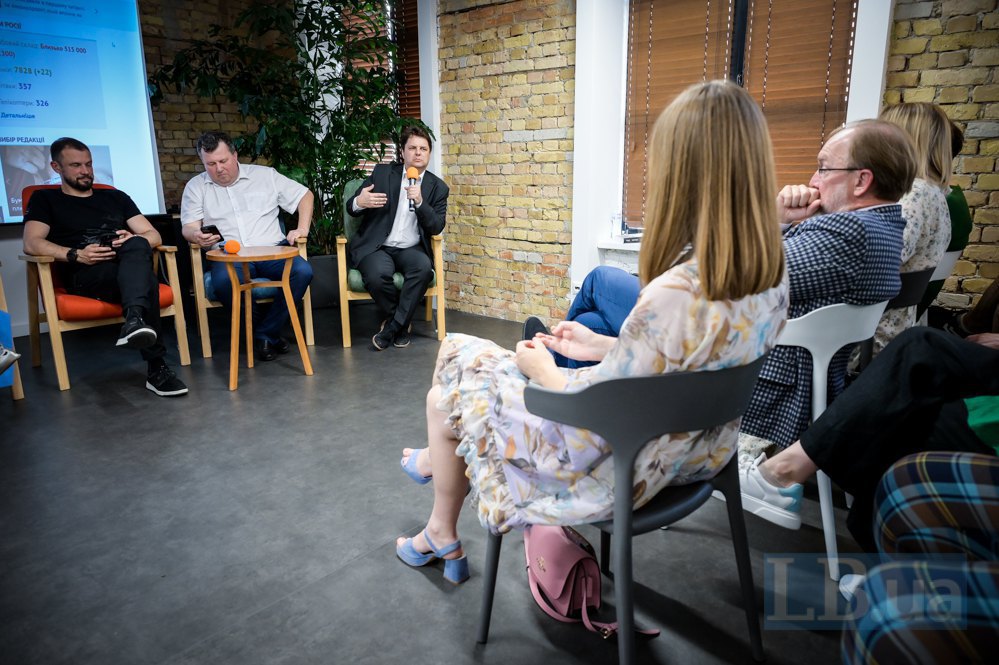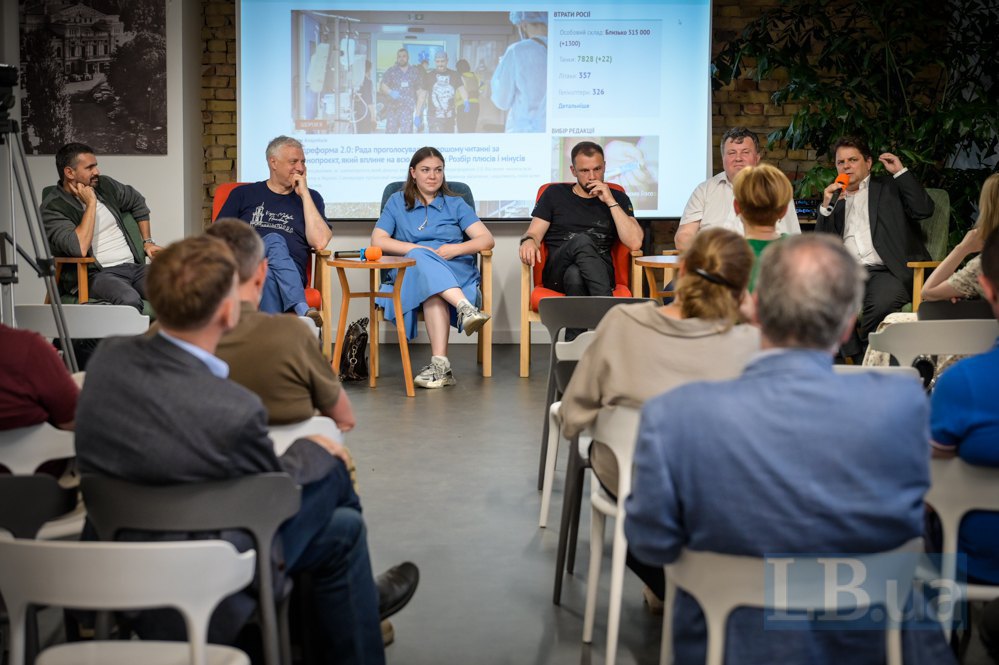
Why we shouldn't say that education is bad
Mykhaylo Vynnytskyy is sure that the situation with education in Ukraine is not as bad as it is usually said to be.
"Why did we repel the Russian invasion of Kyiv, Kharkiv and Kherson? We did it because everyone took responsibility. Because we have shown that the hierarchical Russian society is not capable of forming a territorial defence, of forming small groups that gathered, found equipment and went... Let's take some responsibility. In a positive sense. We repelled and stopped it when all our Western partners said that Kyiv would fall in three days. I'm sorry, two years have passed. Is it only because Russia is poorly organised? Or maybe we have a little bit of merit in this?
...That hive of our society did not appear out of nothing. It came from our education system. Because education shapes a personality. [Some] people have learned to take responsibility," the deputy minister said.
In addition, he notes that technical higher education institutions today work almost exclusively for the defence industry, providing "brains that are lacking elsewhere in the military industrial complex". The first drone with a range of a thousand kilometres was also developed in a higher education institution, the official said.
"Why did a completely unique institution called the Individual entrepreneur appear in Ukraine? It doesn't exist anywhere else. Because we are an entrepreneurial society. Where did this come from? It came from a unique education system. My point is that we often like to complain about how bad our education system is. Let's get rid of our inferiority complex. We have a healthy foundation. And with the discourse that everything is bad, everything is gone, we are destroying our own foundation.
...I'm very sorry, but you are sitting in front of a man who migrated to this country. Am I crazy? My children (two students, one graduate and one schoolgirl) have such fundamental knowledge that is not available anywhere else. Believe me. My children have studied in Scotland and Canada, and they have something to compare with," said the representative of the Ministry of Education and Science.
And in order not to lose "this fundamental part called knowledge," according to Vynnytskyy, it is necessary to build it on erudition, worldview, the ability to communicate, form communities, and initiative.

What is wrong with the education system
The root cause of the educational problems is that society, as the main customer of education in the country, requires educational institutions to provide papers and diplomas without teaching integrity, responsibility, subjectivity, etc.
"76% of school leavers go to higher education institutions. Why? Because mum said it was necessary. We - those who serve society (and education is an institution that serves society) - cannot say: sorry, but we will have fewer people in higher education. This is simply unrealistic. Because there is a public demand for a diploma. Another question is what kind of diploma should it be? A person at the age of 17 should not think about who they will be. At the age of 17, a school leaver should think about one thing: I want to be a human being. Then they can enter the university. If you choose a profession, then you need to follow the European path, where there will be classical universities that answer the question "I want to be a human being" and applied science universities that train for a specific profession. These are completely different paradigms," said Vynnytskyy.
The higher education reform, which has been underway for a decade, he added, involves Europeanisation, autonomy of universities and increased student agency. However, the speed of change often depends on political conditions.
"Today we have three bills passed in the second reading, eight in the first. In fact, these things are moving fast. I was a maximalist when I took up this position more than a year ago, I believed that everything could be done in a maximum of six months. Today I realise that a year is a relatively good period of time.
Something has been done, something we would like to do more of, something faster. But we are dealing with 1.1 million students and about 100,000 teachers. This is a huge system. And, obviously, their interests will be reflected in various MPs and authorities, who, if they do not slow down the process, will take time to accelerate reforms," explained Mykhaylo Vynnytskyy.
The reform, according to the Deputy Minister, should establish the subjectivity of students and make them responsible for their own decisions. Then the higher education system will be based on the student's choice, on the competition of teachers for students; on the competition of institutions for intellectual resources (teacher plus student, plus postgraduate student).
"And it all sounds very good philosophically and is well implemented through various principles, including European ones, some legislative things. But we have a reality that acts like a cold shower. This year, there will be about 140,000 applicants for postgraduate studies. To give you an idea, traditionally, there were 3,500 state-funded students and about 1,200-1,500 contract students in postgraduate studies. That is, 5,000 is our normal level.
Two years ago, 15,000 people entered postgraduate studies, last year - 18,000. This year, we introduced a compulsory exam for postgraduate studies, and 140,000 people registered for it. And an additional 100,000 will apply for a master's degree. 245,000 people registered for the single entrance exam," said the deputy head of the Ministry of Education and Science.
And instead of systematic reform, Mykhaylo Vynnytskyy noted, he spends 90% of his time fighting against such things; against the dishonesty of rectors who, as the head of the State University of Infrastructure and Technology, gave an 8.7 million bonus to a vice-rector who is abroad; or who are trying to extend their term of office despite the 10-year term established by law.

"The reality is that sometimes you give up. Because you realise that there are maybe 15-20 centres of intellectual development, intellectual community in the country," the deputy minister said.
The answer to the dishonesty of university leaders may be the long-term building of horizontal relationships based on responsibility and trust.
"All attempts to change education in a radical way, with sudden jerks, do not work. Unfortunately. Whether we like it or not, education is an extremely conservative industry. Because each of us is an expert in education.
...Unfortunately, the criticism that comes from education or towards education is always based on the fact that someone has to be a scoundrel, someone has to be responsible, someone has to do something. Friends, until we come to true collegiality, to the understanding that education is our common problem, because it is a social institution and educational institutions should be managed as communities, not as hierarchies, we will be floundering in who is to blame," believes Mykhaylo Vynnytskyy.
5 necessary changes in higher education, according to the Deputy Minister
- The division of universities into types - at least into those that work for the labour market and those that work to form a personality.
"I would really like us to understand that the purpose of a bachelor's degree is not to prepare for the labour market in all universities, although some should. So the first thing is that we need to divide universities into at least two types. This is part of our Europeanisation. Perhaps we need a third type, and a fourth, and a fifth. But the bachelor's degree, in my opinion, is the formation of a personality in the first place," said Mykhaylo Vynnytskyy.

- Competition of subjects in an educational institution.
According to the representative of the Ministry of Education and Science, this rule has already been voted on, but the change will not be sudden, it will go through its evolutionary development.
"But this means that the student gains subjectivity - their trajectory depends on their choice. The curriculum is not structured as it was before, with a lot of compulsory courses. We are evolutionarily moving away from this. This means that we are forming a market for subjects, competition of subjects within institutions," said Deputy Minister Oksen Lisovyy.
- Optimisation of educational institutions to a minimum of 10,000 students.
"If an educational institution is small, there is no competition, because there are few students, few teachers, and little choice. Accordingly, we have to modernise our network with a minimum number of 10,000 students. Is this suitable for all institutions? Obviously, it doesn't. A conservatory with 10,000 students makes no sense. There is no point in merging the conservatory with Shevchenko University either. There will be small institutions, but we have to consolidate the system," the Ministry of Education and Science is convinced.
- Reforming the magistracy.
It can no longer be just a fifth or sixth year of study - it is a separate level of higher education, and it needs to be developed the most, said Mykhaylo Vinnytskyy.
"There is nothing wrong with taking a break between bachelor's and master's degrees. It's even good," he added.
- Changes at the postgraduate level.
Today, postgraduate studies have turned into a complete profanation, where postgraduates do all the real work, and "a 50-year-old professor just writes them down in his book." Until this situation is rectified, there is no point in investing in research and development, which determine the level of an educational institution. Accordingly, Vynnytskyy believes that the PhD degree should be abandoned and a Doctor of Philosophy should be introduced - this would be a fundamentally different approach to training a scientist.








